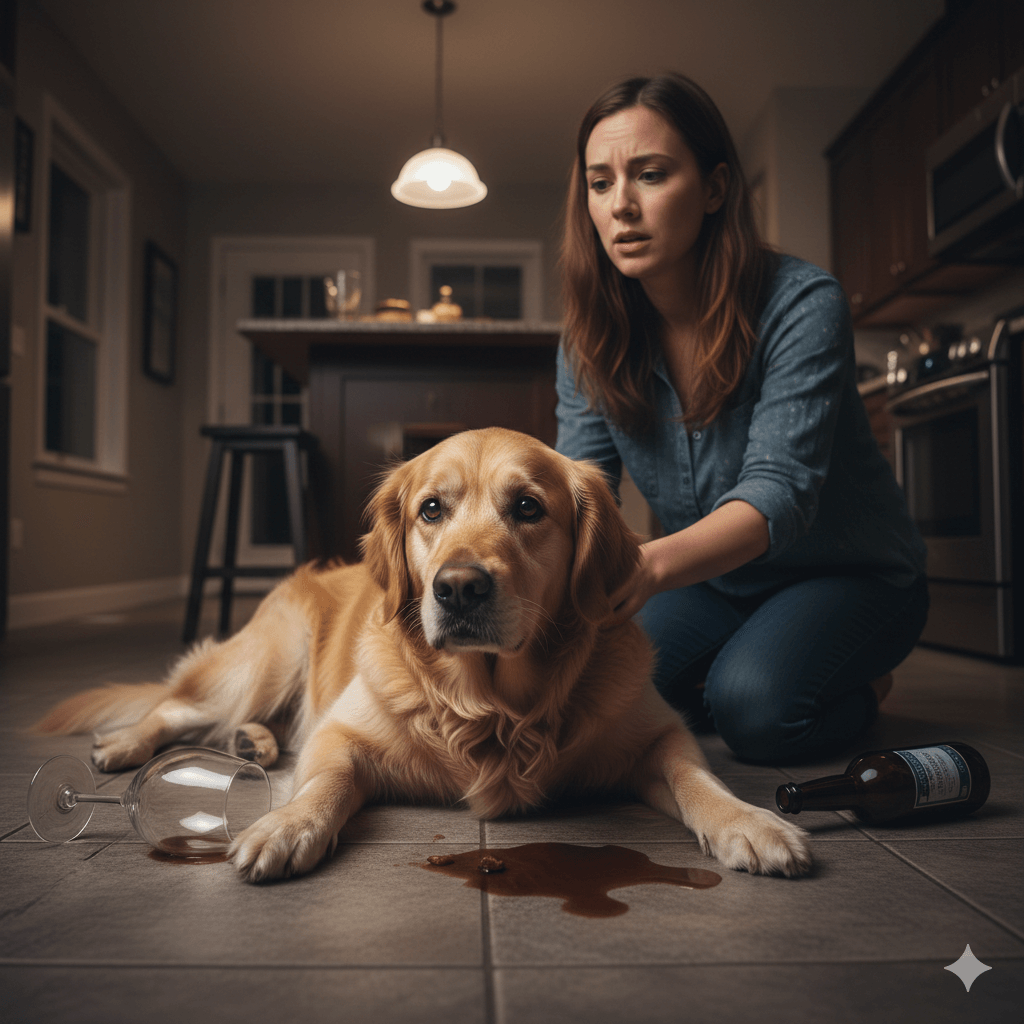Why Does My Dog Whine at Night? Understanding the Reasons Behind the Noise
If you’ve ever been jolted awake by your dog’s persistent whining in the middle of the night, you’re not alone. Many pet owners find themselves wondering why their furry companions suddenly decide that nighttime is the perfect moment to express their feelings. While it might seem like your dog is simply trying to annoy you, there’s usually a deeper reason behind this behavior. Dogs communicate through sounds, body language, and actions, and whining is one of the ways they let us know something is on their mind. In this blog post, we’ll explore the possible reasons for nighttime whining and provide practical tips to help both you and your pup get a good night’s sleep.
Common Reasons Why Your Dog Whines at Night
Before jumping to conclusions, it’s important to understand that dogs whine for a variety of reasons. This behavior can stem from physical needs, emotional states, or even learned habits. Here are some of the most common explanations:
Separation Anxiety
Dogs are pack animals, and being left alone can trigger feelings of loneliness or stress. If your dog associates nighttime with isolation, they may whine to seek comfort.Physical Discomfort
Pain, illness, or discomfort can cause your dog to vocalize their distress. Conditions like arthritis, digestive issues, or even an uncomfortable sleeping surface could be the culprit.Hunger or Thirst
If your dog hasn’t eaten enough during the day or doesn’t have access to water at night, they may whine to let you know they need sustenance.Need for Bathroom Breaks
Puppies, senior dogs, or those with medical conditions may need to relieve themselves more frequently. A full bladder could be the reason for their nighttime cries.Boredom or Lack of Stimulation
Dogs who don’t get enough exercise or mental stimulation during the day may become restless at night. Whining can be a way to release pent-up energy.
Understanding these potential causes is the first step toward addressing the issue. Once you identify the root cause, you can take steps to alleviate your dog’s discomfort and improve their nighttime behavior.
How to Identify the Cause of Your Dog’s Whining
Figuring out why your dog is whining at night requires careful observation and patience. Here are some steps you can take to pinpoint the underlying issue:
Monitor Their Daily Routine
Keep track of your dog’s eating, drinking, and bathroom habits during the day. Any irregularities could provide clues about their nighttime behavior.Check for Physical Signs of Discomfort
Inspect your dog for signs of injury, such as limping, licking a specific area, or reluctance to move. These could indicate pain or illness.Observe Their Body Language
Pay attention to how your dog behaves before and after whining. Are they pacing, panting, or showing signs of anxiety? This can help you determine if emotional factors are at play.Test Their Environment
Make sure your dog’s sleeping area is comfortable, quiet, and free from distractions. An uncomfortable bed or loud noises could disrupt their rest.Consult a Veterinarian
If the whining persists despite your efforts, schedule a vet visit. A professional can rule out medical conditions and provide tailored advice.
By systematically addressing these areas, you can narrow down the cause of your dog’s nighttime whining and take appropriate action.
Check this guide 👉Why Does My Dog Lick My Legs? Best 7 Behavior Tips!
Check this guide 👉Why Is My Dog Biting at Their Butt? Best 7 Behavior Tips!
Check this guide 👉Why Does My Dog Rest His Head on Me When He Sleeps? Best 7 Tips

Possible Causes of Nighttime Whining | Solutions to Address the Issue |
|---|---|
Separation anxiety | Provide comfort items like blankets or toys. Gradually acclimate them to alone time. |
Physical discomfort or illness | Schedule a vet checkup to rule out medical issues. Ensure their sleeping area is ergonomic. |
Hunger or thirst | Adjust feeding times or leave a bowl of water nearby (if safe). Avoid overfeeding. |
Need for bathroom breaks | Take your dog out for a potty break before bedtime. Consider using puppy pads for emergencies. |
Boredom or lack of stimulation | Incorporate more playtime, walks, or interactive toys into their daily routine. |
Tips to Reduce Nighttime Whining
Once you’ve identified the cause of your dog’s whining, it’s time to implement strategies to address the problem. Here are some effective tips to help minimize nighttime disturbances:
Establish a Consistent Bedtime Routine
Create a calming pre-sleep ritual, such as a short walk, brushing, or quiet cuddle time. This signals to your dog that it’s time to wind down.Provide Mental and Physical Stimulation
Engage your dog in activities that tire them out mentally and physically during the day. Puzzle toys, fetch, and obedience training are great options.Introduce Comfort Items
Offer familiar objects like a favorite blanket or toy to create a sense of security. These items can help soothe anxious dogs.Gradually Increase Alone Time
If separation anxiety is the issue, practice leaving your dog alone for short periods and gradually extend the duration. Reward calm behavior to reinforce positivity.Use Positive Reinforcement
Reward your dog when they remain quiet at night. Treats, praise, or affection can encourage them to repeat desirable behaviors.
With consistency and patience, these strategies can help reduce your dog’s nighttime whining and promote peaceful evenings for everyone.
When to Seek Professional Help
While many cases of nighttime whining can be resolved at home, there are instances where professional intervention may be necessary. Here’s when you should consider reaching out for help:
Persistent or Escalating Behavior
If your dog’s whining becomes louder, more frequent, or harder to manage despite your efforts, it’s time to consult an expert.Signs of Severe Anxiety
Excessive panting, destructive behavior, or attempts to escape the house could indicate severe anxiety that requires specialized treatment.Medical Concerns
Unexplained weight loss, changes in appetite, or visible signs of pain should prompt an immediate vet visit.Behavioral Issues Beyond Whining
If your dog exhibits other problematic behaviors, such as aggression or excessive barking, a certified trainer or behaviorist can offer guidance.Difficulty Implementing Solutions
If you’re struggling to implement solutions effectively, a professional can provide personalized strategies tailored to your dog’s needs.
Seeking help early can prevent minor issues from escalating and ensure your dog receives the care they deserve.
Environmental Factors Contributing to Nighttime Whining
Your dog’s nighttime whining may not always stem from internal factors like anxiety or discomfort—it could also be influenced by their surroundings. Environmental triggers can play a significant role in disrupting your dog’s rest. Here are some common environmental factors to consider:
Excessive Noise Levels
Loud sounds from traffic, neighbors, or household appliances can startle your dog and cause them to vocalize their distress.Changes in Routine or Setting
Moving to a new home, rearranging furniture, or even introducing a new family member can unsettle your dog and lead to nighttime whining.Temperature Extremes
A room that’s too hot or too cold can make it difficult for your dog to relax, prompting them to express their discomfort through whining.Unfamiliar Scents
Strong smells from cleaning products, candles, or air fresheners can overwhelm your dog’s sensitive nose and disrupt their sleep.Inadequate Lighting
Some dogs feel uneasy in complete darkness, while others may become restless if there’s too much light in the room.
By addressing these environmental factors, you can create a calmer and more comfortable space for your dog, reducing the likelihood of nighttime whining.
Emotional Triggers That Cause Whining
Dogs are highly emotional creatures, and their feelings often manifest through vocalizations like whining. Understanding the emotional triggers behind this behavior can help you provide better support. Here are some emotional factors that may contribute to nighttime whining:
Fear of Being Alone
Dogs who are overly attached to their owners may struggle with separation, especially during the quiet hours of the night.Overstimulation Before Bedtime
Playing energetic games or exposing your dog to exciting stimuli right before bed can leave them too wired to settle down.Past Trauma or Negative Experiences
Rescue dogs or those with a history of neglect may exhibit nighttime whining as a result of unresolved trauma.Lack of Social Interaction
Dogs who don’t receive enough attention during the day may try to compensate by seeking interaction at night.Uncertainty About Their Role
Dogs thrive on structure, and a lack of clear boundaries or routines can leave them feeling insecure and prone to whining.
Recognizing and addressing these emotional triggers can go a long way in helping your dog feel more secure and less likely to whine at night.
Training Techniques to Curb Nighttime Whining
Training is an essential tool in managing your dog’s nighttime whining. With consistent practice, you can teach your dog to associate bedtime with calmness and relaxation. Here are some effective training techniques to try:
Crate Training for Comfort
Introduce your dog to a crate as a safe and cozy den-like space where they can retreat and feel secure.Desensitization to Alone Time
Gradually increase the amount of time your dog spends alone in their sleeping area to reduce feelings of abandonment.Teaching a “Quiet” Command
Use positive reinforcement to reward your dog when they stop whining on command, reinforcing the idea that silence is desirable.Redirecting Attention
Provide engaging toys or puzzles to occupy your dog’s mind and redirect their focus away from whining.Establishing a Calm Pre-Sleep Routine
Incorporate soothing activities like gentle petting or soft music to signal that it’s time to wind down.
With patience and consistency, these training techniques can help curb nighttime whining and foster a sense of security for your dog.
Frequently Asked Questions About Nighttime Whining
Why does my dog only whine at night and not during the day?
Dogs often whine at night because their environment changes, leading to feelings of isolation or boredom. The quieter surroundings may also make them more aware of discomfort.
Can puppies outgrow nighttime whining?
Yes, many puppies will stop whining as they grow older and adjust to their routines. However, consistent training and a structured environment can speed up the process.
Is it okay to ignore my dog’s whining?
Ignoring whining can work in some cases, especially if it’s attention-seeking behavior. However, ensure your dog’s basic needs are met before doing so.
What if my dog whines after I leave the room?
This could indicate separation anxiety. Gradual desensitization and positive reinforcement can help ease their distress.
How long does it take to train a dog to stop whining at night?
The timeline varies depending on the dog and the cause of the whining. With consistent effort, improvements can often be seen within a few weeks.
Creating Peaceful Nights for You and Your Dog
Dealing with nighttime whining can be frustrating, but it’s important to approach the situation with empathy and understanding. By identifying the root cause and implementing targeted solutions, you can help your dog feel more secure and content. Whether it’s addressing separation anxiety, ensuring physical comfort, or seeking professional guidance, every step you take brings you closer to peaceful nights. Remember, patience and consistency are key. With time and effort, both you and your furry friend can enjoy restful sleep and strengthen your bond in the process.
Cat Alcohol Poisoning Symptoms: Best 7 Expert Tips! – Learn to spot signs, act fast, and protect your cat from the dangers of alcohol exposure.
Dog Alcohol Poisoning Symptoms: Best 7 Expert Tips! – Learn to spot signs, act fast, and protect your dog from the dangers of alcohol exposure.
Mast Cell Tumors in a Cats Tail: Best 7 Expert Tips! – Learn symptoms, treatment options, and expert advice to manage this common feline condition effectively.
Bernese Mountain Dog Size: Best 7 Expert Tips! – Discover growth stages, weight management, and care tips to ensure your gentle giant thrives.





